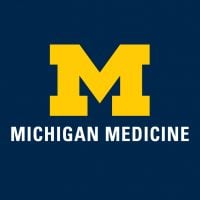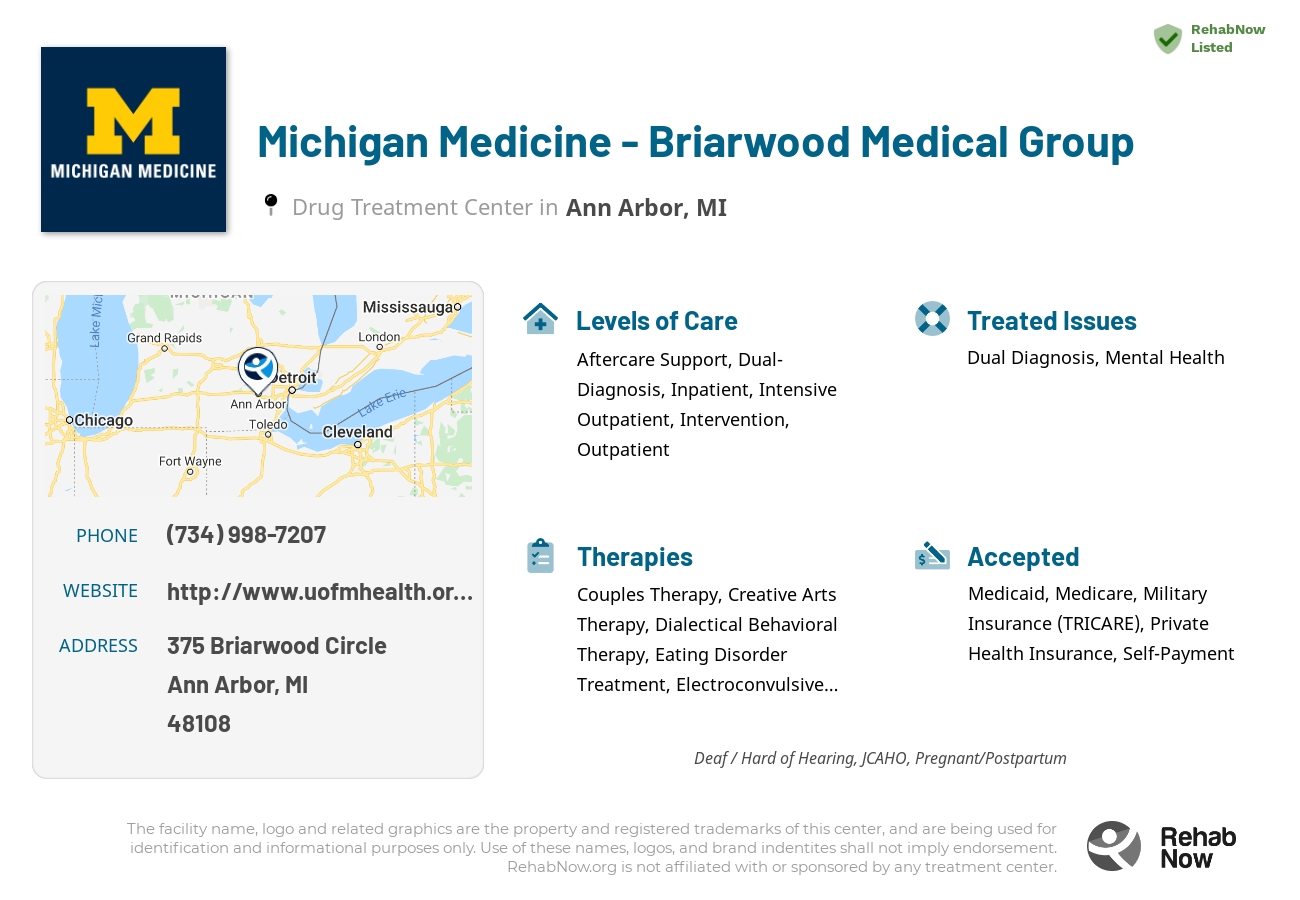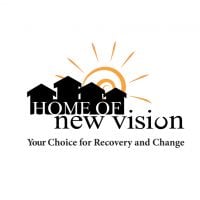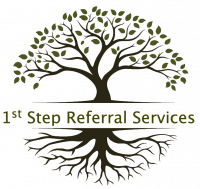Michigan Medicine - Briarwood Medical Group
Drug Rehab Center in Ann Arbor, Michigan
Michigan Medicine - Briarwood Medical Group provides compassionate and evidence-based addiction and substance abuse treatment through specialized programs, customized treatment plans, and an integrated mental health approach, prioritizing the physical and emotional well-being of patients and their families.
About Michigan Medicine - Briarwood Medical Group in Michigan
Michigan Medicine - Briarwood Medical Group, located in Ann Arbor, MI, is a longstanding Addiction Treatment Facility that has been providing comprehensive care since its establishment in 1850. The facility is accredited by JCAHO, ensuring a commitment to high-quality services and patient safety. Michigan Medicine - Briarwood Medical Group specializes in treating individuals suffering from Dual Diagnosis, Eating Disorders, and Mental Health issues. They offer a range of levels of care, including Aftercare Support, Dual-Diagnosis Treatment, Inpatient Treatment, Intensive Outpatient Treatment, Intervention Services, and Outpatient Treatment. Their affiliation with the University of Michigan further enhances their expertise and access to cutting-edge treatment approaches.
Michigan Medicine - Briarwood Medical Group is dedicated to addressing the complex and interconnected needs of individuals struggling with addiction and substance abuse. Their comprehensive approach includes various evidence-based services to help individuals on their recovery journey. Through their Inpatient Treatment program, they provide a safe and structured environment for individuals requiring intensive care and supervision. The facility also offers Intensive Outpatient Treatment for those who can benefit from a less restrictive setting while still receiving intensive therapy and support. Michigan Medicine - Briarwood Medical Group also provides Outpatient Treatment, allowing individuals to continue their recovery while living at home and attending therapy sessions as needed. Additionally, their Dual-Diagnosis Treatment services cater to individuals with co-occurring mental health disorders, ensuring holistic care. With a focus on aftercare support, they offer ongoing assistance to individuals as they transition back into their daily lives, increasing the chances of long-term recovery success.
Genders
Ages
Modality
Additional
Accreditations

JCAHO
Conditions and Issues Treated
Dual Diagnosis treatment centers like Michigan Medicine - Briarwood Medical Group provide this treatment tailored to the patient’s specific needs, and they also have a specialized focus on addiction treatment. Drug and alcohol addiction often coexists with another mental illness, such as depression or schizophrenia. In other words, drug addiction is only a symptom of a deeper problem.
When addiction enters into the picture, it can often lead to dangerous consequences in the addict’s life. For example, when addiction is paired with major depression, it can lead to suicidal thoughts or actions. When someone is addicted to drugs or alcohol, they often experience a failure to control their impulses and difficulty decision-making.
Dual diagnosis for drug addicts can be very effective when treating drug addiction in Ann Arbor, MI.
Levels of Care Offered
This center offers a variety of custom treatment tailored to individual recovery. Currently available are Aftercare Support, Dual-Diagnosis, Inpatient, Intensive Outpatient, Intervention, Outpatient, with additional therapies available as listed below.
The inpatient rehab at Michigan Medicine - Briarwood Medical Group promises an intense and effective treatment. Inpatient rehabs are particularly recommended for those with a severe addiction to drugs. Detoxing at a rehab center ensures that the patient receives 24-hour medical supervision to ensure the best possible chance of recovery. Medical staff is readily available to intervene in case of withdrawal symptoms or other complications. This is not the case with outpatient treatment, where patients may be discharged after the detoxification process is complete.
Inpatient facilities provide residential and holistic treatment, with access to experienced medical professionals and rehab specialists. This ensures the best possible recovery and is recommended for patients with severe addiction seeking drug treatment.
Intensive Outpatient Programs (IOPs) are a form of drug treatment that allows individuals to receive the therapy they need while remaining in their homes and community. IOPs allow for the flexibility to continue working and living at home while still meeting treatment demands.
Outpatient treatment programs are less intensive than an inpatient program. Participants live at home while working or going to school. Benefits include being able to continue relationships with family, friends, and work/studies. Treatment includes educating patient on addiction to drugs, medication, and counseling. Benefits include being able to continue relationships with family, friends, and work/studies. Treatment includes educating patient on addiction to drugs, medication, and counseling. Counseling sessions are for either individual or group.
Drug rehab intervention aims to make sure patients understand the risks of their addiction and possible outcomes if they continue their behavior. They must learn how their addiction affects those around them and allow a therapy session to help move past the physical symptoms.
Interventions are used in drug rehab to help patients overcome their addiction to drugs. They often include psychotherapy or behavioral therapy, group therapy, family counseling, and peer support. Each intervention is designed to provide a unique perspective of how the addiction occurs and what can be done to stop it.
Aftercare Support in drug rehab is crucial because it helps people stay sober after treatment. The benefits of Aftercare Support are that it provides a pathway that will help people get sober for life. It supports healing at all levels, physical, mental, emotional, and spiritual.
Therapies & Programs
Individualized Treatment is essential because it gives addicts the ability to participate in a program that meets their unique needs. An addict should work with professionals who understand what they’re going through, especially if the addict is actively using.
Trying to find a treatment program that meets your needs can be challenging. It’s even more complicated if you don’t know what kind of treatment you need. Being able to have professionals who are experienced with treating your situation is key to getting sober. Finding the right treatment program for an addict is difficult, but it’s even harder without communicating with those who have experience treating your specific situation.
Couples therapy is beneficial for couples in which at least one partner has a substance use disorder. This type of therapy can help partners improve communication skills, which is an important factor in a healthy relationship. It can also help partners better understand one another so they have a greater understanding of how the other partner may be feeling.
Benefits of couples therapy include:
- Improvement in communication skills
- Increased understanding of the dynamics within a relationship
- Increased sense of support and trust in the relationship
- Better teamwork between partners/increased willingness to listen and work together
- Enhanced tolerance of each other’s shortcomings
- Improved ability to have open, honest communication with each other
Family dysfunction can often be the underlying cause of substance abuse. To get sober, you need to find a different way to cope with the pain in your life. Family therapy can help you and your family deal with old issues that may trigger substance abuse. It will help everyone understand why each member of the family feels and acts the way they do. It can give everyone new tools to manage their emotions so that they don’t want to drink or do drugs.
A person looking for drug recovery should know that group therapy is an essential tool. Group therapy provides accountability and friendship to people with addiction. It is recommended as a lifetime treatment habit. Group therapy occurs in a group setting as opposed to a one-on-one setting. It benefits patients by providing a feeling of support and letting them know they are not alone. Patients at Michigan Medicine - Briarwood Medical Group also learn to build trust and understanding and gain perspective through discussions.
If you are looking for a drug addiction treatment program that also provides trauma therapy, then Michigan Medicine - Briarwood Medical Group in Ann Arbor, MI is a great option. The staff at this facility specialize in helping people process and understand the past traumas that have led them to addiction. This approach can help individuals move forward with their recovery and take a better hold of their sober future.
The benefits of trauma therapy at Michigan Medicine - Briarwood Medical Group in Ann Arbor, MI are as follows:
- People will become less likely to engage in self destructive behaviors.
- Their emotional and mental health will significantly improve.
- They will be more confident in their abilities to live an addiction-free life.
- People will be able to connect with other people on a deeper level.
- Their problems with intimacy and trust will improve.
Dialectical behavior therapy is a type of cognitive-behavioral therapy that focuses on eliminating specific negative thoughts that can potentially lead to an individual inflicting self-harm. It helps treat patients exhibiting uncontrollable emotions, intense mood swings, and borderline personality disorders.
The term “dialectic” means the integration of opposites. In the substance abuse context, dialectical behavior therapy refers to accepting the patient’s addiction and changing their thoughts and behavior. It improves life skills such as controlling intense emotions without reacting impulsively, resolving interpersonal conflicts effectively, and promoting awareness about self and others.
Cognitive behavioral therapy (CBT) is a type of psychotherapeutic treatment that is focused on changing negative ways of thinking that contribute to addictive behavior.
Cognitive behavioral therapy is beneficial for:
- People who are seeking to overcome addictive behavior
- Those who struggle with addictive behavior and mental illness
- People who have a genetic history of addiction in their family
- Those who don’t want to depend on medications
- Those who need a more practical treatment approach
Life skills training is beneficial for addicts in recovery because it helps them learn how to take care of themselves and improve their quality of life, which can promote feelings of purpose and motivation.
This type of treatment works by teaching individuals life-enhancing skills that support positive living, including:
- Healthy lifestyle habits
- Skills to effectively manage stress
- Effective communication skills to help them get their needs met without turning to drugs or alcohol
- Money management and budgeting skills so they can continue to take care of themselves after treatment ends.
Thinking about nutrition is an odd thing when you’re strung out. You are probably so low physically that all you want to do is sleep, eat comfort food and get high again. It’s hard to imagine having enough energy to care about what kind of food you are eating but think about it. Your body has gone through some severe physical stress, so it is vital to give it the building blocks it needs to recover. It’s equally important to remember that malnutrition can affect your mood and energy level, which affects your desire to get sober.
If you’re eating right, you’ll have more energy for productive activities, such as going to meetings or being with other sober people in Ann Arbor, Michigan. You’ll have more strength to fight cravings, and you won’t be so low that they are overwhelming. You will think clearly enough to make sober decisions. Finally, good nutrition helps keep your body strong against the familiar ravages of drug use–tuberculosis, hepatitis, abscesses, infections, etc.—as well as the physical symptoms of withdrawal.Nicotine replacement therapy can help addicts reduce or eliminate their cravings for nicotine. By replacing the harmful substances in tobacco with less potent chemicals, most smokers can gradually wean themselves off cigarettes without experiencing intense cravings.
During these sessions, a therapist will work with the addict to gradually reduce their dependence on nicotine by controlling how much they smoke and providing appropriate breaks between cigarettes. Using this type of therapy in combination with other strategies can help smokers learn how to quit smoking for good and avoid relapse.
Patient Experience
Creative Arts
In Creative Arts Therapy for addicts, the final product matters far less than the experience of creation and expression itself. It is believed that enhancing creativity and developing skills related to it can help people recover faster. Activities such as painting, writing, acting, and dancing are considered therapeutic and hosted and managed by Michigan Medicine - Briarwood Medical Group in Ann Arbor, MI. They become outlets for patients to blow off steam, channel their emotions, and express their thoughts and feelings.
Experiential Therapy at Michigan Medicine - Briarwood Medical Group
Experiential therapy is a type of therapy that has been found to be effective in the treatment of substance abuse. It is a “hands-on” approach, which can involve anything from acting to rock climbing. The individual must trust the therapist for this therapy to work. This therapy helps individuals revisit and heal from past traumas and has been used in various behavioral and eating disorders.
Payment Options Accepted
For specific insurance or payment methods please contact us.
Is your insurance accepted?
Ask an expert, call (888) 674-0062
University of Michigan Associated Centers
Discover treatment facilities under the same provider.
- Michigan Medicine - Domino's Farms in Ann Arbor, MI
- Michigan Medicine - Rachel Upjohn Building in Ann Arbor, MI
- Michigan Medicine - Howell Health Center in Howell, MI
- Michigan Medicine - Ypsilanti Health Center in Ypsilanti, MI
- Michigan Medicine - Burlington Building in Ann Arbor, MI
Learn More About University of Michigan Centers
Additional Details
Specifics, location, and helpful extra information.
Ann Arbor, Michigan 48108 Phone Number(734) 998-7207 Meta DetailsUpdated November 25, 2023
Staff Verified
Michigan Medicine - Briarwood Medical Group Patient Reviews
There are no reviews yet. Be the first one to write one.
Ann Arbor, Michigan Addiction Information
Michigan has the second-highest rate of drug and alcohol abuse in the nation. Heroin is linked to more than 50% of the state's hepatitis C cases. Marijuana is the drug most often associated with crimes in Michigan, followed by methamphetamines. Opioids alone are responsible for almost 20% of all drug overdose deaths in Michigan.
Ann Arbor, Michigan has a moderate level of drug addiction and abuse problems. Over 9,000 people are addicted to drugs and over 16,000 abuse drugs. Cocaine is the most commonly abused drug in Ann Arbor, followed by heroin. To find the best drug treatment facility in Ann Arbor, Michigan, you can use a variety of resources. You can browse through our online directory of addiction treatment centers.
Treatment in Nearby Cities
- Midland, MI (98.3 mi.)
- Manistee, MI (189.9 mi.)
- Hart, MI (166.5 mi.)
- New Baltimore, MI (59.7 mi.)
- Wixom, MI (22.2 mi.)
Centers near Michigan Medicine - Briarwood Medical Group
The facility name, logo and brand are the property and registered trademarks of Michigan Medicine - Briarwood Medical Group, and are being used for identification and informational purposes only. Use of these names, logos and brands shall not imply endorsement. RehabNow.org is not affiliated with or sponsored by Michigan Medicine - Briarwood Medical Group.












